By: TPA News Desk | editor@thepointafricanews.com
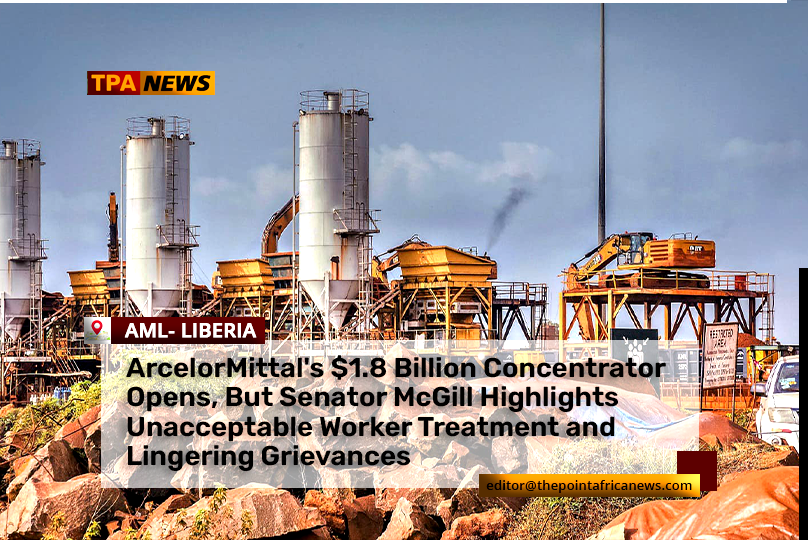
NIMBA COUNTY, Liberia – The ground trembles not just from the immense power of the newly opened $1.8 billion iron ore concentrator in Nimba County, but also from the growing unrest and active protests among the workforce whose labor fuels its gargantuan machinery. As President Joseph Boakai officially inaugurated one of ArcelorMittal’s largest mining facilities in Liberia on Thursday, June 5, 2025, the event, while a beacon of potential economic growth, simultaneously cast a harsh spotlight on the stark realities faced by many of its employees and subcontractors.
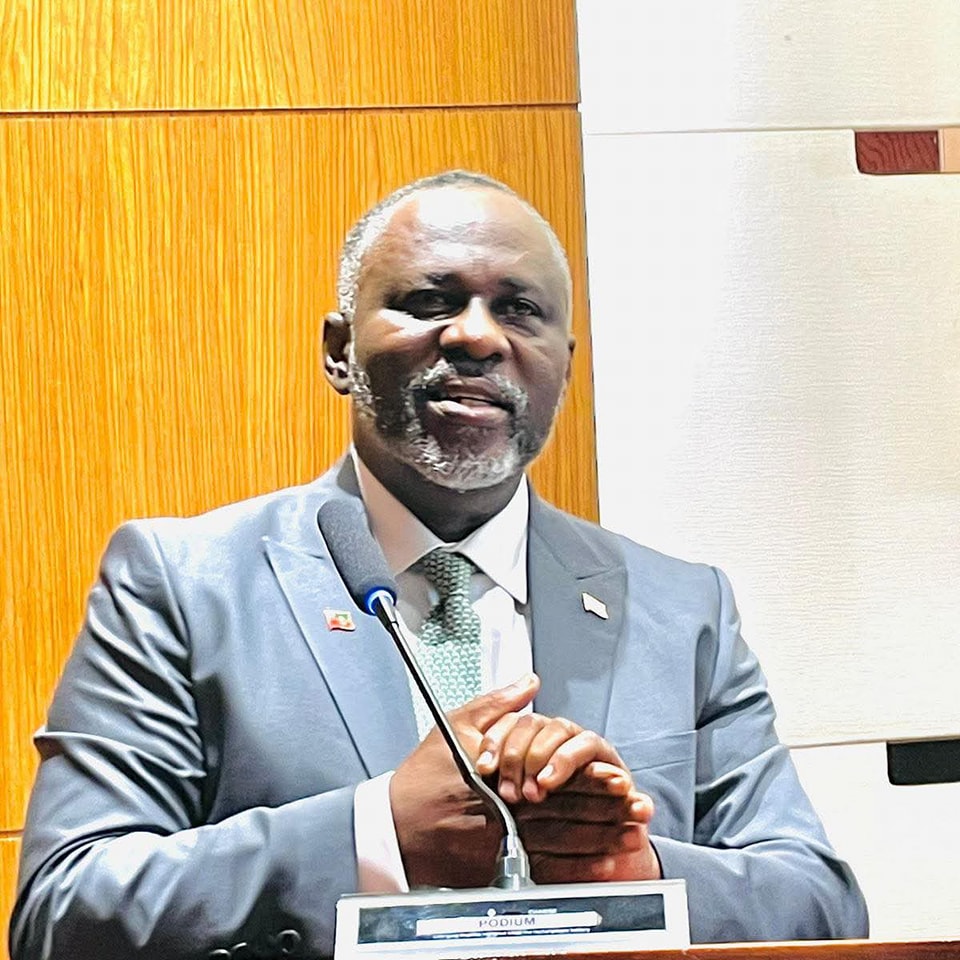
The celebratory speeches about billions in investment and national progress were met with a poignant counter-narrative, articulated sharply by Margibi County Senator Nathaniel McGill. “Building a $1.8 billion iron ore concentrator is a good thing, but at least allocate $100m for decent housing for employees,” Senator McGill wrote, his words resonating beyond his constituency.
“To keep our people living in containers while extracting billions of dollars worth of ore is wrong and unacceptable. 25 years with no equity share! Nimba deserves better! Liberia deserves the best.”
This powerful statement cuts to the core of a long-standing grievance among the mining giant’s workforce and its contractors: the perceived disparity between the vast mineral wealth being extracted and the living conditions and long-term benefits afforded to the very Liberians enabling that extraction. For many workers, “living in containers” is not a temporary inconvenience but a persistent emblem of a system where their dignity and well-being appear secondary to profit margins. These cramped, often stifling metal units stand in stark contrast to the shimmering promise of the industrial complex they help operate, fostering a sense of disenfranchisement. Recent reports highlight that workers of WBHO, a key ArcelorMittal subcontractor, have staged protests, including blockading the crucial railway line, over accusations of persistent labor violations, unpaid overtime, and insufficient allowances, directly impacting ArcelorMittal’s operations. This unrest is a tangible manifestation of the broader discontent.
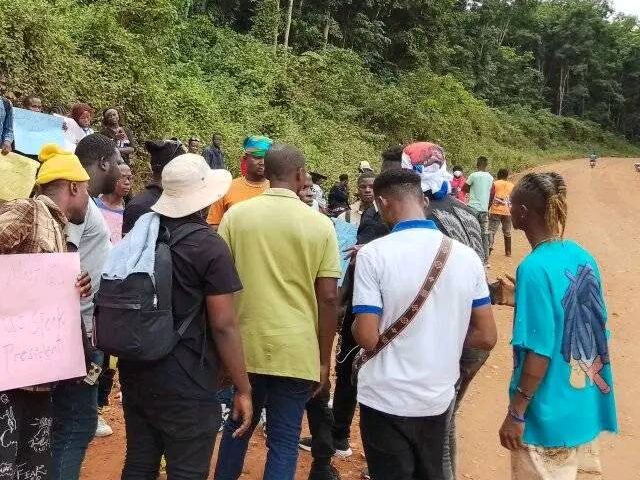
The “25 years with no equity share” highlighted by Senator McGill speaks to a deeper frustration: the feeling that Liberians, particularly those from resource-rich regions like Nimba, are not truly beneficiaries or partners in the long-term prosperity generated from their own land. It implies a sense of being laborers for foreign entities rather than stakeholders in a national enterprise, feeding into broader complaints about working conditions, fair wages, and a genuine stake in the companies operating on their soil. Indeed, complaints of underpayment, poor working conditions, and significant disparities between local and expatriate staff have frequently surfaced over the years.
For President Boakai and his administration, this grand opening presents a critical test. On one hand, securing such a monumental foreign direct investment and fostering industrial expansion is crucial for Liberia’s post-conflict recovery and development. The concentrator promises jobs, increased revenue, and a boost to the national economy, aligning with the government’s stated goals of prosperity.
However, the prevailing workforce discontent and actual protests, amplified by a prominent voice like Senator McGill’s, underscore the delicate tightrope the government must walk. To genuinely “thrive” in this context, the administration cannot merely be seen as facilitating foreign investment. It must actively champion social justice and equitable development. This means moving beyond rhetoric to ensure that agreements with international companies include enforceable provisions for decent, humane housing, fair wages, and safe working conditions. The government should also explore mechanisms for Liberian citizens and communities to have a genuine equity share or more tangible, long-term benefits from resource extraction. Furthermore, facilitating transparent dialogue by establishing clear, accessible channels for workers’ complaints and ensuring swift, impartial resolution of grievances is paramount. Above all, the administration must prioritize human dignity, making it unequivocally clear to investors that while economic growth is desired, it must not come at the cost of the fundamental rights and dignity of the Liberian workforce.
The opening of the ArcelorMittal concentrator is indeed a significant milestone. But for Liberia to truly “deserve the best,” as Senator McGill passionately asserts, its government must ensure that the billions extracted from its soil translate into tangible, equitable benefits and a life of dignity for the Liberian people, starting with those who labor to bring its wealth to the surface. It is a moment for President Boakai to demonstrate that national development goes hand-in-hand with social responsibility and justice for all citizens.



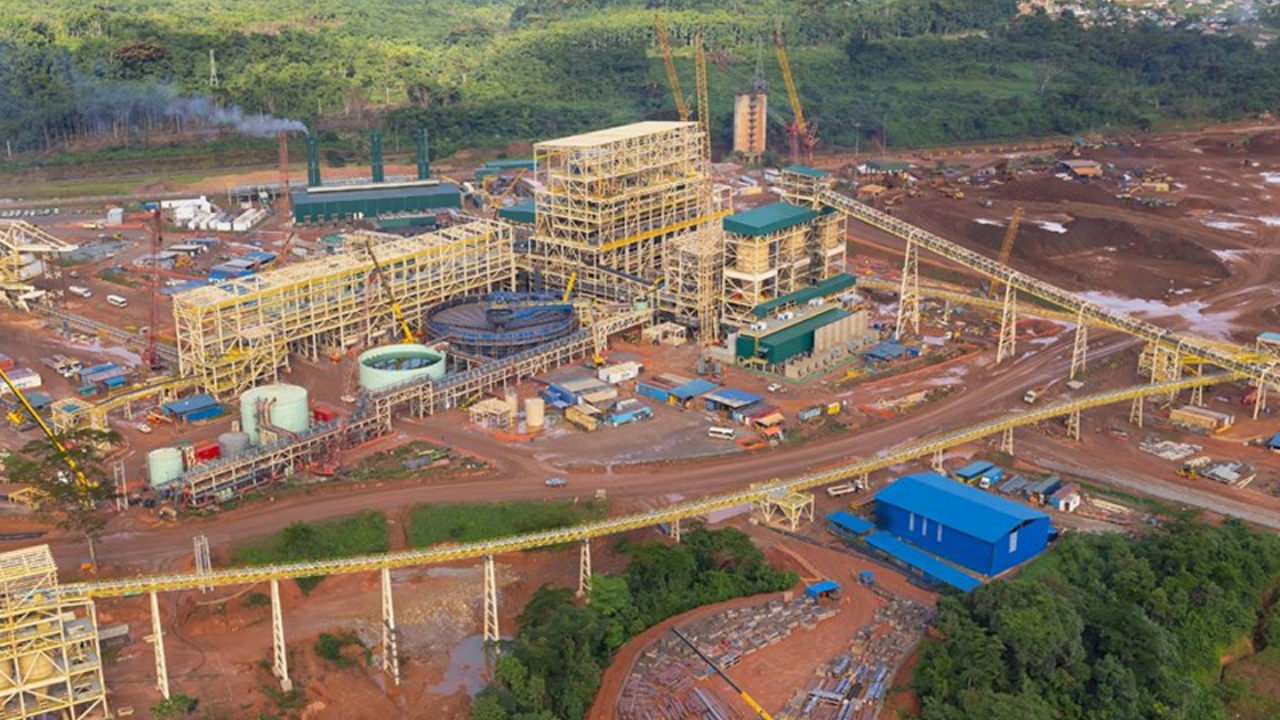
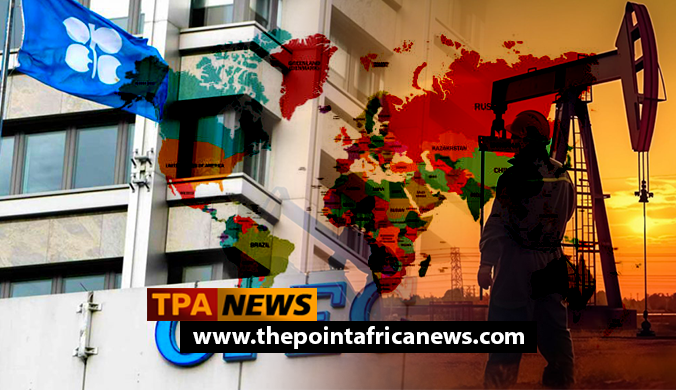
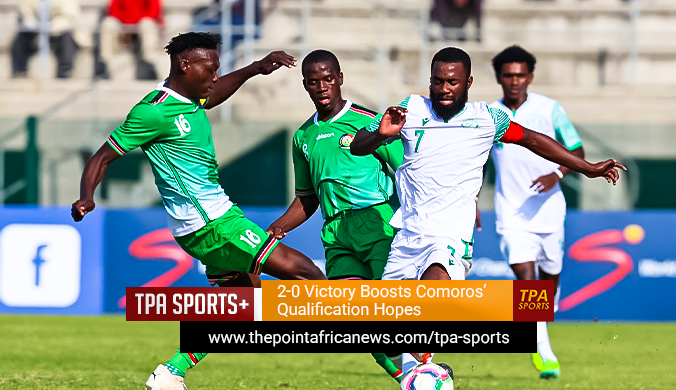
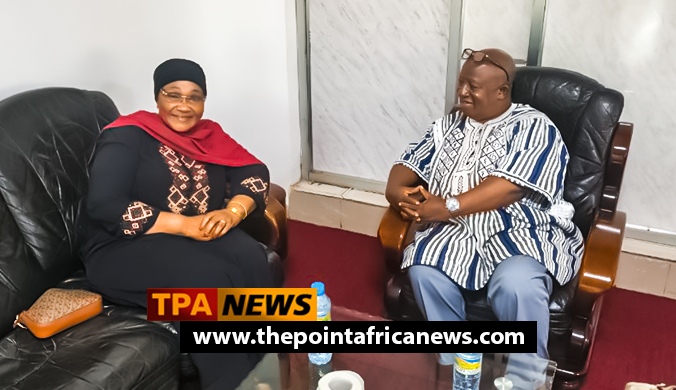
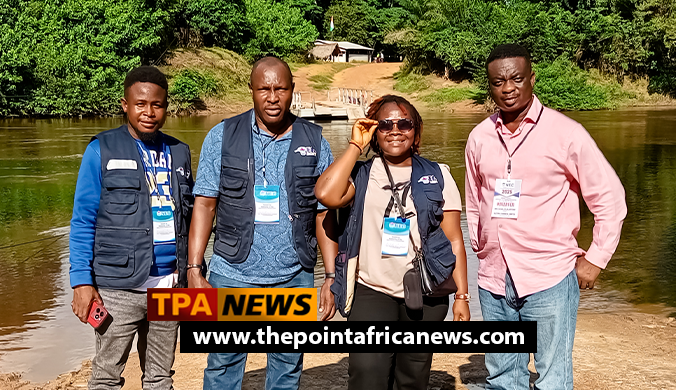
Leave a Reply